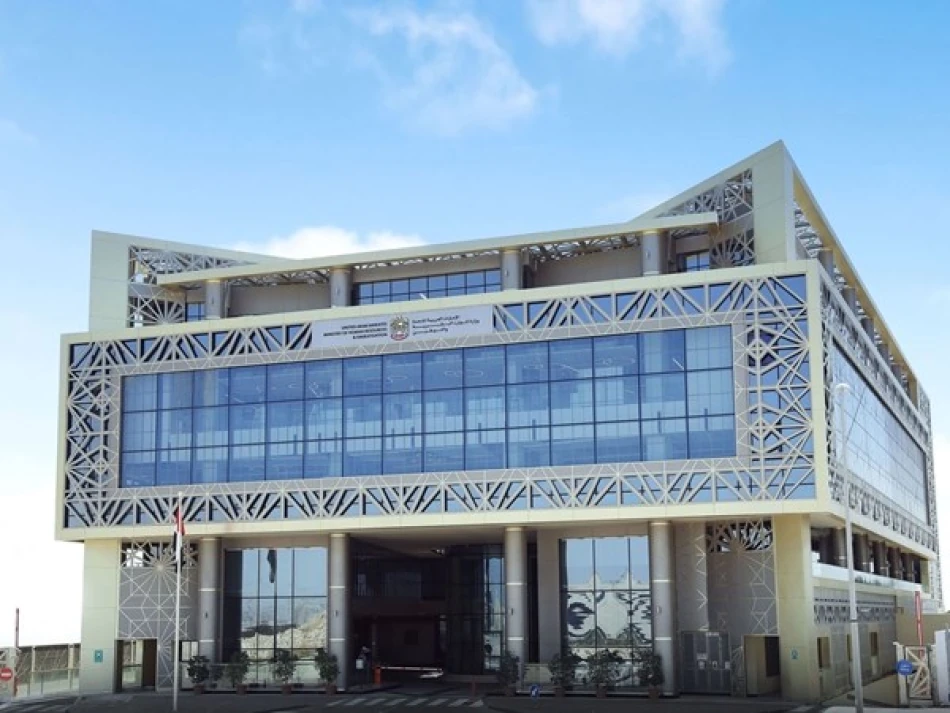
152,000+ Saudi Citizens Employed in Private Sector by June's End
UAE's Private Sector Emiratization Surge: 152,000 Nationals Now Employed as Economic Diversification Accelerates
The UAE has achieved a milestone in its ambitious Emiratization program, with over 152,000 Emirati nationals now working across more than 29,000 private companies as of June 2024. This represents the largest private sector employment of UAE citizens in the country's history, signaling a fundamental shift in how the nation is preparing its economy for the post-oil era while reducing dependence on government employment.
Historic Employment Numbers Reflect Economic Transformation
The Ministry of Human Resources and Emiratisation announced these figures following the completion of first-half 2024 Emiratization targets. The achievement underscores the effectiveness of the government's "Nafis" program and related employment initiatives designed to make Emirati workers more competitive and attractive to private employers.
What makes these numbers particularly significant is the 33% growth in new companies entering the UAE market last year. This suggests that Emiratization is not happening in a stagnant economy but during a period of robust business expansion, making the integration of local talent more sustainable and less forced.
Strategic Sectors Leading the Charge
Emirati nationals are now working across six key economic sectors: business services, financial intermediation, trade, repair services, construction, and manufacturing. The diversity of these sectors indicates that Emiratization has moved beyond token appointments to encompass technical, managerial, and specialized roles that genuinely contribute to business operations.
Comparison with Regional Peers
The UAE's approach differs markedly from Saudi Arabia's more aggressive nationalization quotas under its Nitaqat program, which has faced criticism for prioritizing numbers over productivity. The Emirates appears to be taking a more measured approach, focusing on competitive advantage rather than mere compliance, with companies reportedly viewing Emirati employees as adding genuine value to their operations.
Market Implications and Business Response
The ministry highlighted strong corporate cooperation with Emiratization policies, suggesting that businesses see strategic value rather than just regulatory burden. This shift in perception is crucial for long-term success, as forced employment typically leads to inefficiencies and resentment on both sides.
For investors and businesses operating in the UAE, this trend signals several important developments:
Talent Pool Expansion: The growing number of skilled Emiratis in private sector roles suggests an increasingly sophisticated local workforce that understands commercial dynamics better than previous generations focused on government employment.
Regulatory Stability: The government's partnership approach with private companies, including incentives for compliance, indicates a more business-friendly implementation of nationalization policies compared to some regional neighbors.
Looking Ahead: Second Half 2024 Targets
The UAE has set additional targets for the remainder of 2024, including a 1% increase in skilled job localization for companies with 50+ employees, and mandatory hiring of at least one Emirati by companies with 20-49 employees across 14 specified economic activities.
These incremental targets suggest a calibrated approach designed to avoid the economic disruptions that aggressive nationalization programs have caused elsewhere in the Gulf. The focus on "skilled jobs" rather than all positions indicates recognition that sustainable Emiratization requires genuine capability building rather than quota filling.
Economic Diversification Beyond Oil
This employment shift represents more than labor policy—it's a cornerstone of the UAE's economic diversification strategy. By creating a generation of Emiratis with private sector experience, the country is building the human capital foundation needed for its post-oil economy.
The success of this program will likely influence similar initiatives across the Gulf, where governments are grappling with the dual challenges of providing meaningful employment for growing young populations while maintaining economic competitiveness in an increasingly globalized world.
Most Viewed News

 Layla Al Mansoori
Layla Al Mansoori






